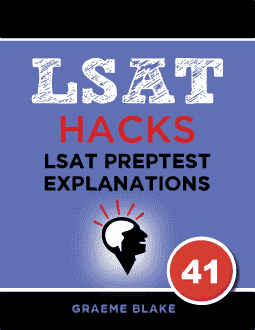QUESTION TEXT: Gas station owner: Increased fuel efficiency reduces air pollution…
QUESTION TYPE: Flawed Reasoning
CONCLUSION: Fuel efficiency should not be pursued.
REASONING: One way of increasing fuel efficiency (smaller cars) would increase the risk of collision.
ANALYSIS: You may be thinking, “He’s only saying that because he sells gas.” And in real life that would be an excellent observation. But in terms of the logic of an argument, it doesn’t matter who says it.
As it turns out though, the owner’s logic is terrible. Just because small cars might not be worth the increased accident risk, he concludes that we should not increase efficiency. Are there no other ways?
___________
- No. He didn’t say the danger couldn’t be reduced. Even if it could be reduced, small cars might still be more dangerous.
- CORRECT. Yes. You could build better engines, or change tires more frequently, or do lots of things to improve energy efficiency.
- There’s actually nothing wrong with drawing a conclusion from factual matters.
- This is another way of saying “circular reasoning,” but that’s not what is going on here. The conclusions and the premises must contain the same term for that to be true.
- He didn’t presume that, and his conclusion was about fuel efficiency, not air pollution.
Recap: The question begins with “Gas station owner: Increased fuel efficiency reduces air pollution”. It is a Flawed Reasoning question. Learn how to master LSAT Flaw questions on the LSAT Logical Reasoning question types page.


Leave a Reply